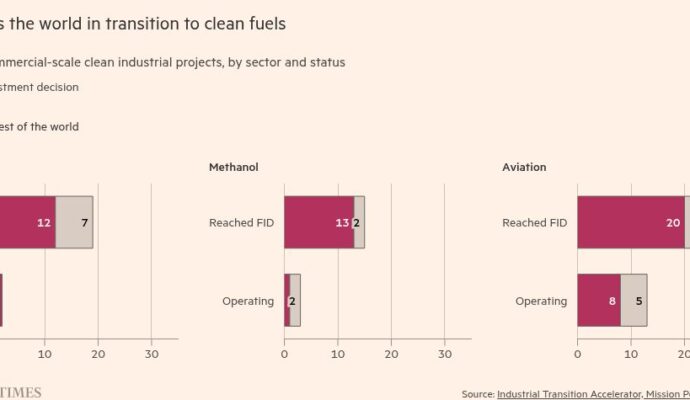Unlock the Editor’s Digest for free
Roula Khalaf, Editor of the FT, selects her favourite stories in this weekly newsletter.
Nidec, one of Japan’s most acquisitive companies, launched a probe into “improper accounting”, sending the motor maker’s shares down 22 per cent on Thursday.
The parts supplier to major automakers including Volkswagen and BMW said late on Wednesday that it was establishing a third-party committee to investigate accounting practices at its Chinese subsidiary Nidec Techno Motor.
The subsidiary was suspected of improper accounting after Nidec was notified of a Rmb10mn ($1.4mn) lump sum payment to a supplier that represented a discount, said the company.
Nidec said the investigations found “multiple documents suggesting that, in addition to Techno, the company and its group companies could have engaged in improper accounting with the involvement or knowledge of its or their management”.
Nidec’s share price move on Thursday was the company’s largest on record, according to LSEG data, and pushed the fall for the year to more than 10 per cent. So far this year the benchmark Topix is up 11.5 per cent. The company’s shares closed 22 per cent lower at ¥2,420.
“The veracity of the matter is unclear but, if there were indeed improper accounting practices, the size of the impact is opaque, which would be a negative surprise,” said Takayuki Naito, an analyst at Citi.
Nidec has been one of Japan’s most aggressive M&A machines — involved in 75 transactions according to its own figures — and has been rapidly growing in China.
However, the probe highlights the risk that has come with rapid expansion into Asia’s largest economy.
Nidec’s chief executive and founder Shigenobu Nagamori said in June that the company would shift its focus from growth to compliance.
The Japanese group had already delayed submission of its annual securities report because of a separate internal investigation into trade transactions and custom issues at another of its subsidiaries.
In May, Nidec withdrew its ¥257bn hostile tender offer for Makino Milling Machine after the company mounted a strong defence, including the use of a poison pill that involved issuing free stock warrants to existing shareholders.
Maintaining its tender offer for Makino would have been “significantly economically unreasonable”, according to Nidec.
The unsolicited approach, which remains rare in Japan but was used successfully once before by Nidec, set off a bidding process that ended up with Korean fund MBK agreeing to buy Makino.


